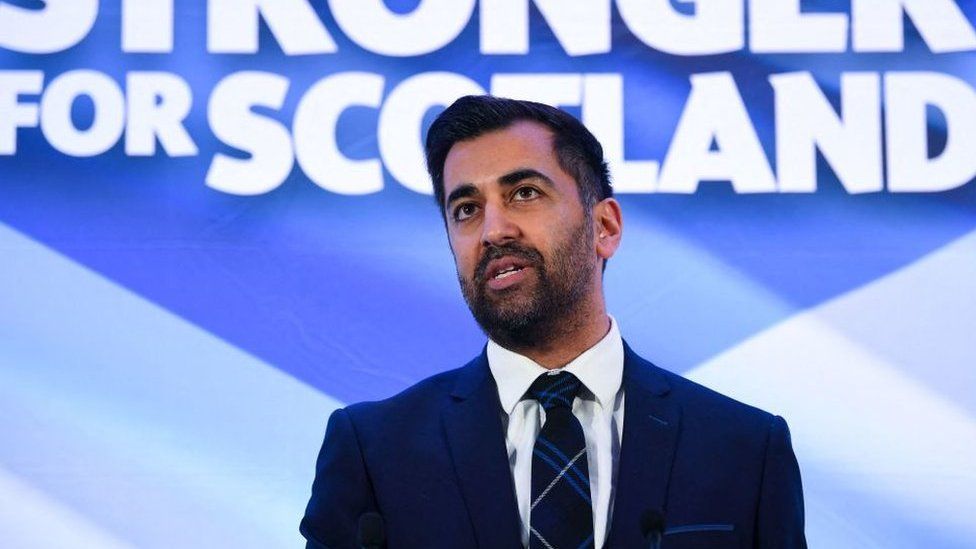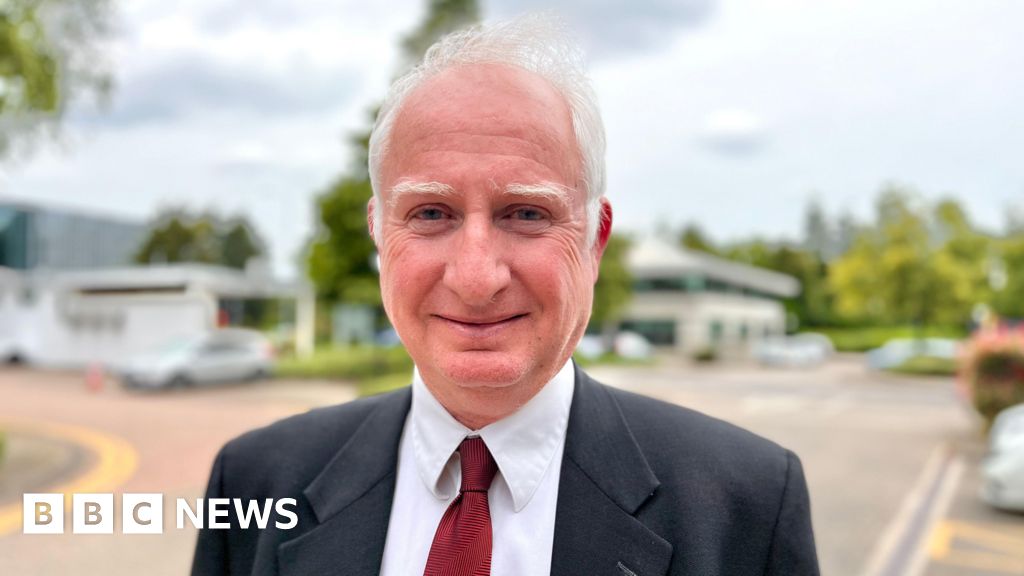ARTICLE AD BOX
 Image source, Getty Images
Image source, Getty Images
Mr Yousaf will give a speech to the convention on Saturday morning
By Stuart Nicolson
BBC Scotland News
The SNP is holding an independence convention as it attempts to map a new path towards Scotland leaving the UK.
The one-day event at the Caird Hall in Dundee has been billed as a chance to "discuss our strategy for securing Scotland's independence".
SNP leader Humza Yousaf has already admitted there is "no rabbit to pull out of the hat".
The party will not make a final decision on its strategy until its main autumn conference in October.
Mr Yousaf, who is also Scotland's first minister, will make a speech shortly after the convention opens that will "set out his view on the way forward for the people of Scotland to express a clear view on how we advance the cause of independence".
He will say that leaving the UK is about "having and using the powers to build a better country" and being able to "make transformational change by taking power into our own hands".
He is also expected to argue that the party needs to build more popular support for independence in order to force the UK government to allow a second referendum.
Several other senior SNP politicians will also address the convention on both the route to independence and its general election strategy, with the party saying there will be opportunities for people to "make contributions from the floor" and take part in "interactive activist workshops".
There will be tributes to former SNP MP Winnie Ewing, an icon of the independence movement who died earlier this week at the age of 93.
The event will also be used to kickstart a summer programme of independence campaigning, which the party said would include leafleting, canvassing and regional assemblies.
There has been criticism from some within the SNP and wider Yes movement of the decision to only allow party members to attend the convention, which is being held at the same time as an All Under One Banner independence march in Stirling.
Former SNP leader Alex Salmond, who now heads the Alba Party, has been among those calling for a cross-party convention to be created that would include the SNP, Alba and other independence supporting parties and organisations.
He also wants an agreement that would see only one pro-independence candidate stand in each constituency at the general election - a proposal which seems unlikely to be accepted by the SNP.
Image source, Getty Images
Image caption,The convention will be held at the same time as an independence rally in Stirling
Despite the widespread assumption that Brexit and Boris Johnson would be gifts for the independence movement, Nicola Sturgeon - who was recently described by Mr Yousaf as being Europe's most impressive politician - did not manage to consistently push support for leaving the UK above 50%.
The UK government repeatedly refused to give her permission to hold a referendum despite the SNP's electoral successes during Ms Sturgeon's eight years as first minister and party leader.
The Yes movement was dealt a further blow last November when the Supreme Court ruled that the Scottish government did not have the powers to hold a vote without that permission being in place.
Ms Sturgeon's response to the court ruling was to propose treating next year's general election as a "de facto referendum".
If the SNP won more than 50% of the votes in the election it would regard it as an endorsement of independence, and the party would then attempt to open negotiations with the UK government.
The UK government would have been under no legal obligation to do so, however, and the plan was deeply unpopular among many SNP MPs, with Stewart MacDonald - previously seen as being one of Ms Sturgeon's staunchest allies - openly criticising it.
Mr Yousaf distanced himself from the de facto referendum plan during the contest to succeed Ms Sturgeon as SNP leader and first minister earlier this year.
With polls suggesting support for the party has fallen in recent months any attempt to resurrect it would be seen as a big gamble.
The SNP leadership has also consistently ruled out holding a referendum that was not seen as being legally binding.
Image source, PA Media
Image caption,Mr Yousaf has previuosly said he wants to be the "first activist" as well as first minister
Mr Yousaf told Sky News earlier this week that there was "no rabbit to pull out of a hat, there's no ruse that I can cook up" to secure an independence referendum.
He added: "The only way to break that Westminster intransigence is through the power of the people, making sure we build up as much popular support to break that log-jam.
"That's what I'll be saying to our party convention, and more, this Saturday."
Polling expert Prof Sir John Curtice said independence support is running at an average of 48% in recent polls - higher than support for the SNP itself.
A Panelbase poll for the Sunday Times last weekend put the SNP at 34% for the next general election and suggested that the party could be on course to win fewer seats than Scottish Labour, a prospect that would have seemed almost unthinkable a year ago.
The past few months have seen both Ms Sturgeon and her husband Peter Murrell being arrested and their home searched as part of an ongoing police probe into the SNP's funding and finances.
Both were later released without charge while further inquiries were carried out.
There has also been controversy over the Scottish government's handling of issues ranging from ferries and NHS waiting lists to gender reform and the deposit return scheme.
Scottish Conservative MSP Donald Cameron said the convention showed that the SNP "always prefer to push their independence obsession rather than focusing on Scotland's real priorities".
He added: "Humza Yousaf and other senior SNP figures are throwing red meat to grassroots nationalists to deflect from their overwhelming failures and the chaos engulfing the party".
Scottish Labour leader Anas Sarwar said the country was in the midst of a cost-of-living crisis and an NHS crisis that had left people struggling to access health treatment.
He said: "At the same time we have a governing party in Scotland that wants to talk to itself about itself and distract away from the chaos and carnage and division they have in their own political party".

 1 year ago
23
1 year ago
23








 English (US)
English (US)